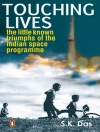This book outlining the latest developments in engineering digital transformation gathers a selection of the best papers presented at the 11th International Conference on Industrial Engineering and Industrial Management (CIO 2017), held in Valencia, Spain, from July 5th to 6th, 2017. The papers discuss topics in the following areas: strategy and entrepreneurship, OR, modelling and simulation, production, logistics and supply chain management, information systems, quality and product management, knowledge and project management, service systems, and education.
Table of Content
Chapter 1. New Perspective on Building Strategy in Public Education Institution.- Chapter 2. Role Clarity and Satisfaction for Knowledge Workers.- Chapter 3. An Innovation Model for EPC/Turnkey Sector: the Case of Abengoa Solar New Technologies.- Chapter 4. How Does Working on University-Business Collaborative Projects Foster the Industrial Doctorates´ Learning Process?.- Chapter 5. Business Model Innovation from a Technology Perspective: A Review.- Chapter 6. The Impact of Real Estate Taxations on the Iinter-Municipal Migration Which Influences The Housing Construction Dynamics.- Chapter 7. Developing a Pre-scale for Evaluating Supervisors´ Directive Style in Continuous Improvement Environments.- Chapter 8. Mandatory Convertible Bonds as an Efficient Method of Issuing Capital.- Chapter 9. Culture and Environment as Antecedents of Technological Entrepreneurship.- Chapter 10. Drivers´ Perception of the Major Advantages of Electric Vehicles.- Chapter 11. A Study on Consumer Behaviour inthe Sharing Economy.- Chapter 12. Levels of Application of Public R&D&I Policy Models.- Chapter 13. Limitations and Pitfalls of the Brain that Prevent us from Thinking.- Chapter 14. Lessons Learned in Assessment of Technology Maturity.- Chapter 15. Assessing Worldwide Research About Performance Measurement for SMEs: 2006 – 2016.- Chapter 16. Organizational Structures in Small and Medium-sized Enterprises (SMEs) and their Performance Measurement Systems.- Chapter 17. Resilience Engineering: Concepts of the New Paradigm.- Chapter 18. The Importance of Intangible Liabilities to Business Management etc.
About the author
Dr. Angel Ortiz Bas
is Full Professor in Operations Management at Universitat Politècnica de València (UPV). He received his Ph D in Industrial Engineering from UPV in 1998. He is deputy director of the Research Centre in Production Engineering at UPV and Director of the Master on Production, Logistics and Supply Chain Management. He is founding partner of the Spin-off UPV EXOS Solutions S.L. His research areas are production, logistics and supply chain. He has also a strong interest in research how to support these areas with business process and ICT methodologies and techniques.
He is member of the Scientific Committee of congresses and Editorial Boards and Associate Editor of Dirección y Organización.
He has published more that 60 papers in International Journals (European Journal of Operational Research, International Journal of Production Economics, Omega, Computers in Industry, Production Planning and Control, International Journal of Computer Integrated Manufacturing, Supply Chain Management: An International Journal, Dirección y Organización, among others) and over 150 papers in Congresses. I have participated in more that 10 European projects and in several projects with companies from different sectors (automotive, textile, retail, tiles, …).
He has been invited professor in Universities in France, England, Germany, Sweden, Argentina, Dominic Republic, México, China and Colombia.
Dr. Carlos Andres is Full Professor of Management Science at Politechnical University of Valencia in Spain. Professor Andres’ research activities are focused on Scheduling, Operation Management, Line Balancing, Cellular Manufacturing and Work Study for disable workers. His work has been published in different journals like the European Journal of Operation Research, Journal of Operation Research Society, International Journal of Production Economics, Discrete Applied Mathematics, etc and abouta hundred of conference proceedings. Knowledge transfer projects have been central to his academic career and his consulting activities are focused towards automotive, furniture, tile and pharmatheutical industries and different private and public service firms.
Dr. Raul Poler is Full Professor in Operations Management and Operations Research at the Universitat Politècnica de València (UPV), València, Spain. He received his Ph D in Industrial Engineering from UPV in 1998. He is Director of the Research Centre on Production Management and Engineering (CIGIP). He is founding partner of the Spin-off UPV EXOS Solutions S.L. He is Director of the Master in Industrial Engineering and Logistics (MUIOL) at Alcoy Campus UPV. He has led several Spanish Government and European R&D Projects. He has published more than 300 research papers in a number of leading journals and in several international conferences. He is Director of the INTEROP-VLab and Chair of its Education Committee. He is the Secretary of INTERVAL. He is member of the Executive Board of the Association for the Development of Organization Engineering (ADINGOR). He is the Chair of the Education Activity of the IFIP WG 5.8 Enterprise Interoperability. His key research topics include Enterprise Modelling, Collaborative Networks, Supply Chain Management, Knowledge Management, Production Planning and Control, Decision Support Systems, Evolutionary Algorithms.
Dr. José P. Garcia-Sabater is Full Professor of Operations Management in the Departamento de Organización de Empresas at the Universidad Politécnica de Valencia (UPV). He received his Ingeniero Industrial Degree and his Ph D from the University Politécnica de Valencia (Spain). He also received a Combined Eng Degree from Coventry University (UK).
His research and teaching interests are in the areas of supply chain and operations management. His research has focused on empirical studies of operations management in several key industries mainly at the Automotive Industry where he manages to raise funds to pay his research collaborators.
Mathematical Programming, Combinatorial Optimization and Discrete Event Simulation are the specific tools that he actively uses to promote change on large and small companies. As an example, the algorithms that are nowdays running the assembly line sequencing process at Ford España where designed, programmed and tested at the laboratory he leads at the UPV. Not only Ford and their Suppliers, but also several SME are using software and algorithms that have been developed at the same Lab.
Together with his ROGLE team Prof Garcia-Sabater has led (and leads) a number of regional and national funded projects, and has participated in several European Funded Projects. These studies have examined mainly Production Planning and Inventory Coordination, but he has also developed in other areas like job design for handicapped people.
He is member of the Scientific Committee of congresses and Editorial Boards. His work has appeared in journals such as European Journal of Operational Research, International Journal of Production Economics, Fuzzy Sets and Systems, Discrete Applied Mathematics, Production Planning and Control, Journal of Industrial and Engineering Management, Flexible Service and Manufacturing Journal and others…
He strives to improve the Operations Management teaching methodologies and techniques at the University, and actively works with different companies and institutions to incorporate mentally handicapped people into regular jobs.
In 2015, the UPV awarded him with the “Premio de Excelencia Docente”.












